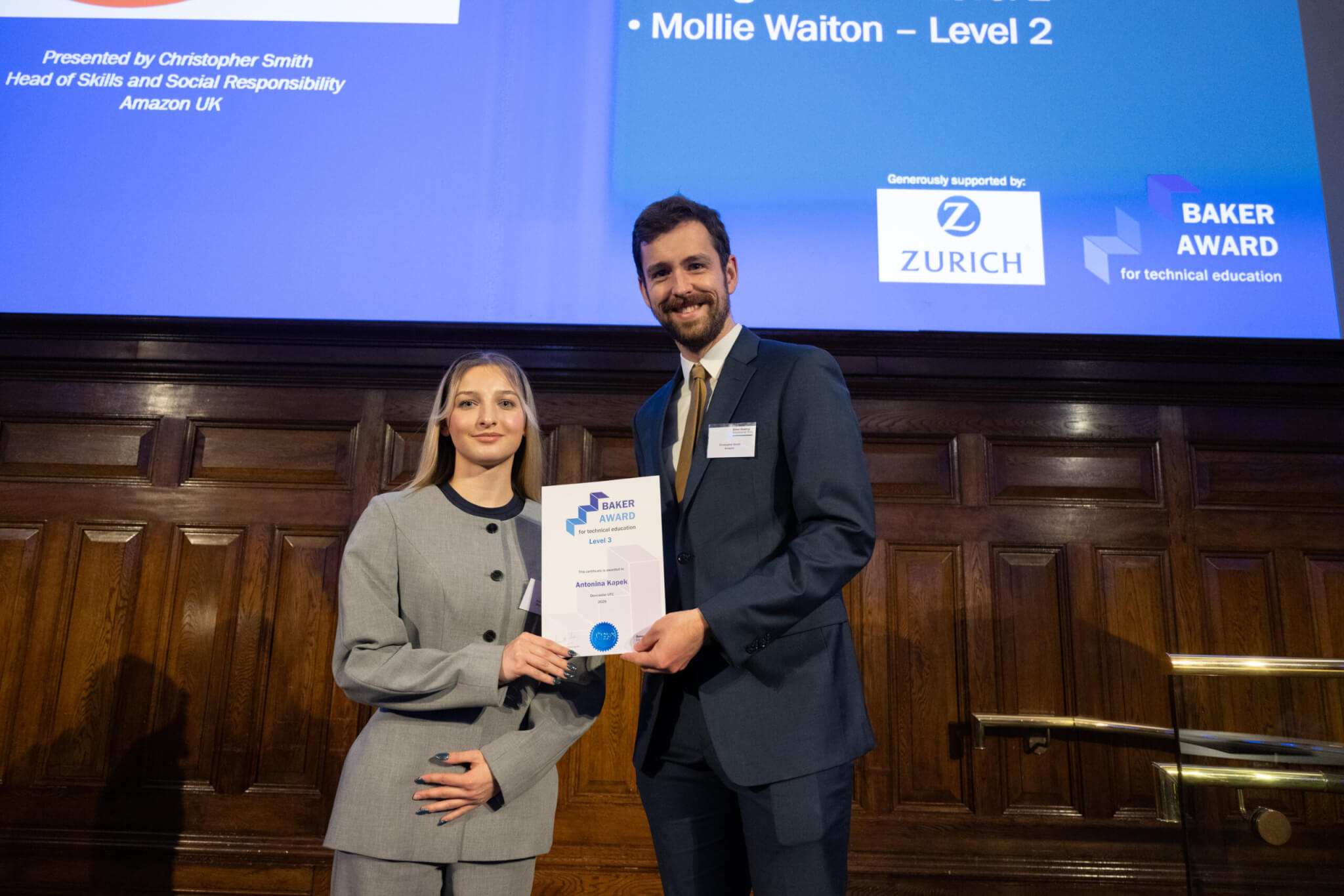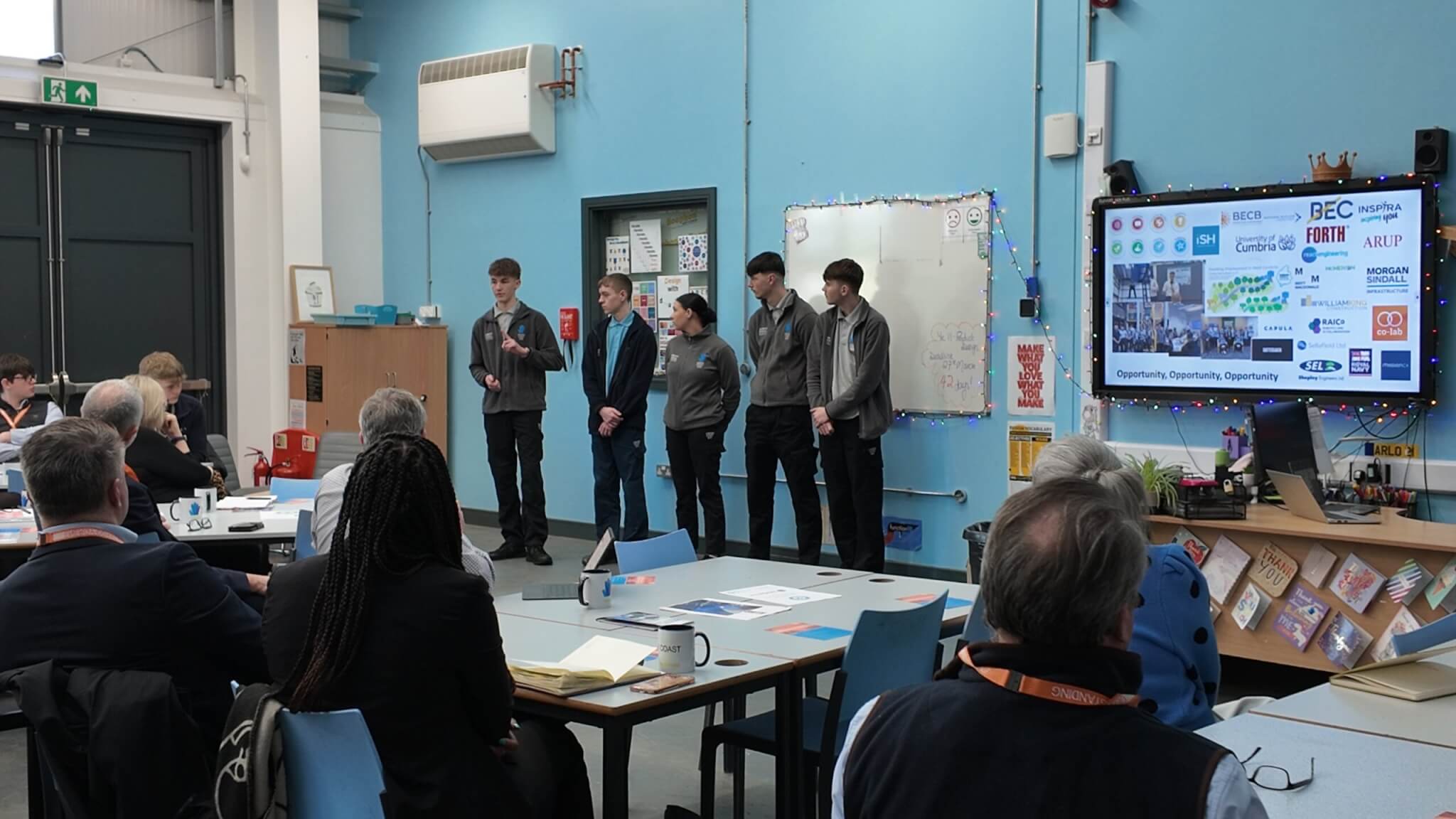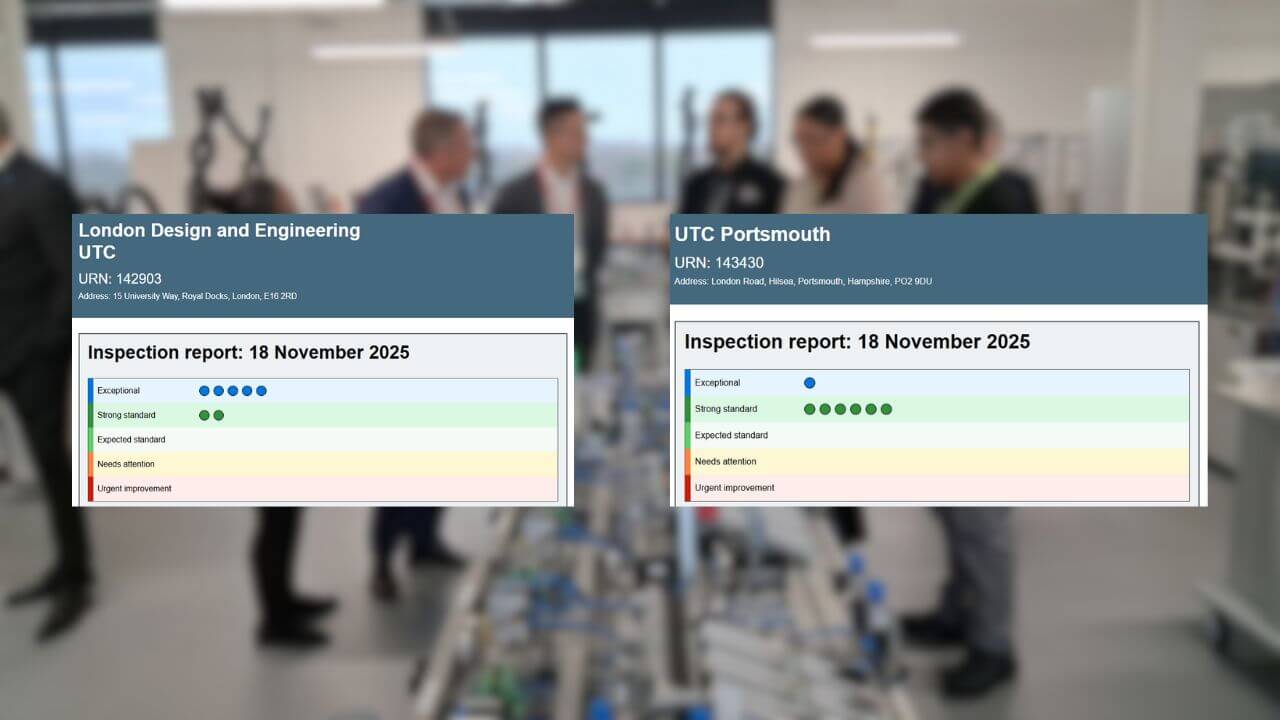The Blueprint spoke to Chris Hatherall and Ed Cervantes-Watson about working together to engage students in the field of robotics, ahead of FIRST’s More Than Robots Championships in London at the end of June.
Chris Hatherall and Ed Cervantes-Watson (pictured top, left and right) have been the driving force behind expanding the use of robotics in the UTC network.
Firstly, by introducing low-cost Experiential Robotics Platform (XRP) kits to UTC Warrington and now by expanding the programme to more UTCs.
Hatherall said: “UTCs work with some of the most disadvantaged young people in the country, so we want to get students engaged in robotics projects which, potentially, are going to lead to some life-changing opportunities.
“Whether that leads to them developing the behaviours they need to be successful in life – working with teams and having really good communication skills – or whether they go on to be the world’s next best roboticists, we will have to see what happens.
“It’s not all about just creating technical talent.”
Both are quick to highlight the role of creativity. Film students from UTC Media City documented the primary school robotics pageant last year.
XRP kits, developed with open-source technology, serve as an accessible entry point to robotics. “We’ve managed to build in Warrington a facility to manufacture the XRP units,” Hatherall explained. “The ambition is to access the funding to create a similar setup in every UTC around the country so they can to produce the XRPs on a local level.”
A long-term goal is to connect wider school communities, particularly in underserved areas, by turning UTCs into regional centres for robotics. It’s a model that aligns perfectly with FIRST UK’s mission and its ‘More Than Robots’ mantra.
For Cervantes-Watson, the partnership represents a long-anticipated opportunity, after struggling with access: “Our biggest challenge, as a charity, is getting our programme into the hands of those who are likely to benefit most from it.”
He found UTCs and Baker Dearing were a “natural home” for the programme, “because of the infrastructure that UTCs have, the students they attract, the skills they’re seeking to develop, and ultimately the industry linkages.”
The UTC also found FIRST would help with preparing young people for workplaces that are making greater use of robotics: “Pretty much all of our nuclear partners use robotics in one form or another. Sellafield, for example, use robots in decommissioning work.”
UTC Warrington students will take part in the UK’s largest robotics championships at London’s Copper Box Arena towards the end of June. They will also have an ambassadorial role at an outreach event at Aston Martin in July, helping deliver robotics experiences to 200 young people from across Northamptonshire, in partnership with Silverstone UTC. Plans are also underway for autumn holiday clubs, at Warrington this year but hopefully in more UTCs later on. An XRP/FIRST robotics event for UTCs, which could count towards the new Baker Award for Technical Education, is planned for the second half of the autumn term, hosted by semiconductor company ARM at their global headquarters in Cambridge.
These events provide an essential aspirational ingredient, Cervantes-Watson says. “It’s not just about the robot, the coding or the engineering; it’s about young people actually seeing themselves in a STEM role.”
One challenge, Hatherall says, is that the curriculum does not “line up exactly” with robotics: “Qualifications are behind the curve in terms of accrediting this activity.
“But we know that young people who are involved in this and have a portfolio of experiences with robotics and the FIRST programme have a leg up when they get onto the job market.”
Cervantes-Watson adds: “What’s really missing is coordination. A coherent industrial strategy, aligned to an appropriate curriculum, driving a talent pipeline empowered with the right skills – which is hopefully what the Curriculum and Assessment Review will help achieve.”
As the More Than Robots Championships approach, and with 15 UTCs interested in working with XRP, both are adamant this programme will only grow.
“Every UTC in the country should be developing their robotics programmes,” said Hatherall.
This article was first published in The Blueprint– Baker Dearing’s newsletter for educators and employers. Subscribe to The Blueprint via LinkedIn:




